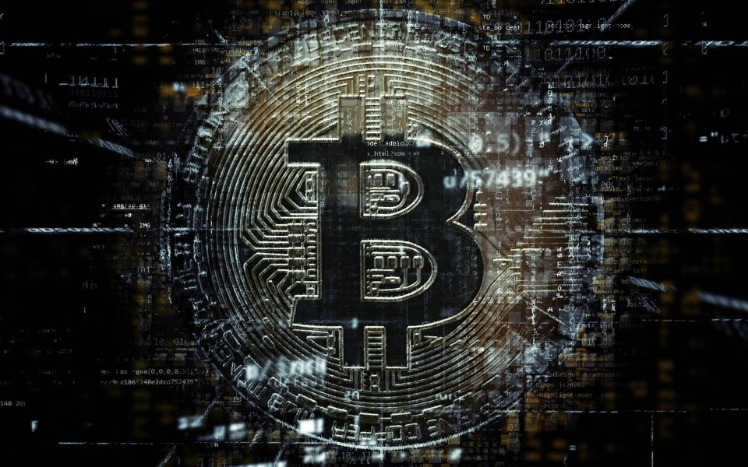Online phishing scheme steals bitcoin from dark web users
Online phishing schemes targeting users of the dark web have been increasingly sophisticated, often resulting in the theft of valuable cryptocurrencies such as Bitcoin. These scams exploit vulnerabilities in user security and trust, leading to significant financial losses for those involved in dark web transactions. Criminal groups utilize various tactics to deceive individuals, including fake websites and malicious links, making it crucial for users to stay vigilant. For more insights on maintaining security while exploring the Bitcoin dark web, it is essential to understand common attack methods and protective measures.
US Law Enforcement Dismantles $24M Dark Web Crypto Laundering Network TRM Blog
Recent investigations have shed light on a sophisticated online phishing scheme that targets dark web users engaged in cryptocurrency transactions, particularly involving bitcoin. This illicit operation has successfully stolen significant amounts of digital currency, exploiting the anonymity provided by the dark web environment.

Law enforcement agencies in the United States have taken decisive action by dismantling a large-scale crypto laundering network valued at approximately $24 million. This network was responsible for facilitating the covert transfer and cleaning of stolen bitcoin funds, making it a central hub for illicit financial activities on the dark web.
The scheme involved elaborate phishing attacks designed to deceive dark web users into revealing sensitive information, which were then used to access their bitcoin wallets. Once compromised, the hackers transferred the funds into their own accounts, making it exceedingly difficult for victims to recover their assets. The use of advanced techniques such as malware and social engineering played a crucial role in executing these attacks.
This crackdown highlights the increasing efforts by law enforcement agencies to combat cybercrimes associated with bitcoin dark web transactions. It also emphasizes the growing importance for dark web users to adopt robust security measures and remain vigilant against emerging threats. Overall, such operations aim to foster a safer environment for individuals and businesses engaging in cryptocurrency activities online.
DOJ seizes $1 billion in cryptocurrency tied to Silk Road dark web market
Online phishing schemes continue to pose significant threats to users engaged in dark web activities, particularly those involved with bitcoin transactions. These deceptive tactics often involve fake websites and malicious emails designed to steal sensitive information, leading to the theft of digital assets and compromising user security. Dark web users who rely on bitcoin as a primary currency face increased risks due to the anonymous nature of transactions, making it an attractive target for cybercriminals.
Recent law enforcement operations have resulted in the seizure of over $1 billion in cryptocurrency linked to the notorious Silk Road dark web market. This significant seizure underscores the ongoing efforts to combat illegal activities facilitated by cryptocurrency. The crackdown highlights the importance of vigilance and security measures for users participating in the bitcoin dark web, as cybercriminals continue to develop sophisticated phishing schemes to exploit vulnerabilities.
- The WannaCry ransomware attack serves as a stark reminder of the evolving landscape of cyber threats and the role of cryptocurrencies in facilitating illicit activities.
- The guidance follows the recommendation ofthe 2018 G20 Summit, in which leaders asked international regulatoryagencies to consider policy responses for crypto assets, particularlyrelated to know your customer, anti–money laundering, and countering thefinancing of terrorism.
- One of the crucial elements that fuel transactions within this hidden network is cryptocurrencies, with Bitcoin playing a significant role.
- The Dark Web soon became a hotbed for illicit activities, with various marketplaces facilitating the exchange of drugs, stolen data, hacking tools, and more using Bitcoin.
Individuals involved in dark web transactions should prioritize security, including using strong, unique passwords, enabling two-factor authentication, and remaining cautious about unsolicited communications. Awareness and proactive measures are essential in protecting digital assets from theft and ensuring safe online practices in the complex environment of the bitcoin dark web.
On The Dark Web, Litecoin Is Gaining Ground On Bitcoin For Payments
Online phishing schemes targeting dark web users have become increasingly sophisticated, leading to significant financial losses, particularly in bitcoin. These cybercriminal activities often involve deceptive emails, malicious links, or fake websites designed to steal login credentials and private keys from unsuspecting users. Once the attackers gain access, they quickly drain the victim’s bitcoin holdings, highlighting the persistent risks associated with dark web transactions. The anonymity provided by bitcoin makes it a popular currency for illicit activities, but it also makes users tempting targets for scammers and thieves.
Amidst these challenges, there is a noticeable shift happening in the dark web’s payment landscape. Litecoin, a cryptocurrency often regarded as a lighter and faster alternative to bitcoin, is gaining ground as a preferred payment method on certain dark web marketplaces. Its faster transaction times and lower fees appeal to buyers and sellers seeking efficiency and discretion. While bitcoin remains dominant, the growing popularity of Litecoin indicates a diversification in dark web financial activities, reflecting users’ desire for more versatile or less scrutinized options.
As dark web markets evolve, users must exercise heightened caution to safeguard their digital assets. Employing strong security practices, such as using hardware wallets, enabling two-factor authentication, and remaining vigilant against phishing attempts, is essential. Understanding the tactics employed by cybercriminals can help protect bitcoin and other cryptocurrencies from theft, ensuring safer transactions within these clandestine environments.

Introduction to Dark Web, Anonymity, and Cryptocurrency EC-Council Learning
The dark web represents a hidden segment of the internet that requires specific software and configurations to access. It is often associated with activities that prioritize anonymity, making it a complex environment for both lawful and illicit pursuits. Understanding the principles of anonymity and how cryptocurrencies like bitcoin are utilized within this space is crucial for those exploring cybersecurity and digital currencies. EC-Council Learning offers valuable insights into these topics, equipping learners with knowledge about the intricate relationship between dark web activities and digital assets. For those interested in exploring secure and anonymous transactions, learning about bitcoin dark web platforms provides a comprehensive perspective on how cryptocurrencies facilitate covert online interactions.

How Dark Web Monitoring is Overcoming the Challenge of Tracing Illicit Cryptocurrency Transactions
The dark web is a hidden part of the internet that is not accessible through standard search engines and requires specialized tools to access. It is often associated with anonymity and privacy, enabling users to operate with a high degree of confidentiality. One of the key features facilitating this anonymity is the use of cryptocurrencies like Bitcoin, which are frequently employed for transactions due to their perceived privacy benefits. This combination of dark web networks and cryptocurrency has given rise to a marketplace where illicit activities, including illegal trade and cybercrime, often occur.

Bitcoin on the dark web has become a preferred currency for illicit transactions because of its decentralized nature and the relative difficulty in tracing transactions. However, despite the perceived anonymity, law enforcement agencies and cybersecurity firms have developed advanced techniques for monitoring these activities. Dark web monitoring platforms utilize a combination of technical analysis, blockchain analysis, and cyber threat intelligence to identify and track illegal cryptocurrency transactions associated with dark web activities.
Efforts in dark web monitoring are increasingly overcoming the challenge of tracing illicit cryptocurrency transactions through methods such as:
- Analyzing blockchain transaction patterns to detect suspicious activity
- Correlating wallet addresses with known illicit marketplaces
- Utilizing machine learning algorithms to identify anomalies in transaction data
- Examining activity on the dark web to associate marketplace operations with blockchain footprints
These innovative approaches are helping authorities and cybersecurity professionals to combat illegal activities involving cryptocurrencies like Bitcoin on the dark web more effectively. As the technology behind dark web activities evolves, so too does the sophistication of monitoring techniques, making it increasingly difficult for illicit actors to operate unnoticed. Continuous advancements in dark web monitoring are vital for ensuring security, transparency, and the enforcement of laws surrounding cryptocurrency use in dark web environments.
Darknet market Wikipedia
The dark web represents a hidden part of the internet that is not accessible through standard search engines and requires specific software or configurations to access. It is often associated with anonymous communication and the concealment of user identities, making it a focal point for various illicit activities. Anonymity on the dark web is achieved through encryption protocols and specialized browsing tools, such as the Tor network, which mask user identities and locations. Cryptocurrencies like Bitcoin have become the preferred method of financial transaction within dark web markets due to their decentralized and pseudonymous nature. These transactions facilitate illegal trade, including drugs, weapons, and stolen data, often on platforms that are part of the darknet marketplace ecosystem. The darknet market scene has evolved significantly, with many users valuing privacy and anonymity above all else, leveraging Bitcoin’s properties to conduct transactions securely and discreetly. The intersection of Bitcoin and the dark web continues to influence discussions around online security, law enforcement challenges, and the future of digital privacy.
How Are the Silk Road, the Dark Web and Bitcoin Connected?
The dark web is a hidden part of the internet that requires specialized tools and configurations to access. Unlike surface web pages that are easily accessible and indexed by search engines, the dark web operates through encrypted networks, offering anonymity and privacy for users. This environment has become synonymous with illicit activities, including illegal marketplaces, darknet forums, and hidden services. Central to many of these activities is the motivation for anonymity, which has driven individuals and organizations to seek secure communication channels and untraceable transactions.
Cryptocurrency, notably Bitcoin, plays a vital role in shaping the landscape of the dark web. Bitcoin’s decentralized and pseudonymous nature makes it an attractive method for conducting transactions without revealing personal identities. This digital currency is often used for purchases on dark web marketplaces, facilitating a range of illicit trades while maintaining a degree of financial privacy. The conjunction of Bitcoin and the dark web exemplifies how cryptocurrencies have become integral to the operational infrastructure of many underground markets and services.
Historically, platforms like Silk Road have exemplified the connection between the dark web, cryptocurrencies, and illegal commerce. Silk Road was one of the first and most notorious online marketplaces that utilized Bitcoin for transactions, allowing users worldwide to buy and sell illegal goods securely and anonymously. The innovation behind Silk Road showcased how the dark web and Bitcoin together could facilitate a decentralized marketplace beyond traditional financial regulations.
The combination of the dark web, Bitcoin, and anonymity technologies underscores a complex ecosystem driven by the desire for privacy and untraceability. While these tools can serve legitimate purposes, such as safeguarding personal privacy in oppressive regimes or protecting sensitive communications, they also pose significant challenges for law enforcement agencies tackling illegal activities. As this interconnected domain continues to evolve, understanding the relationship between the dark web, cryptocurrencies, and deception is crucial for both cybersecurity stakeholders and policy regulators.


